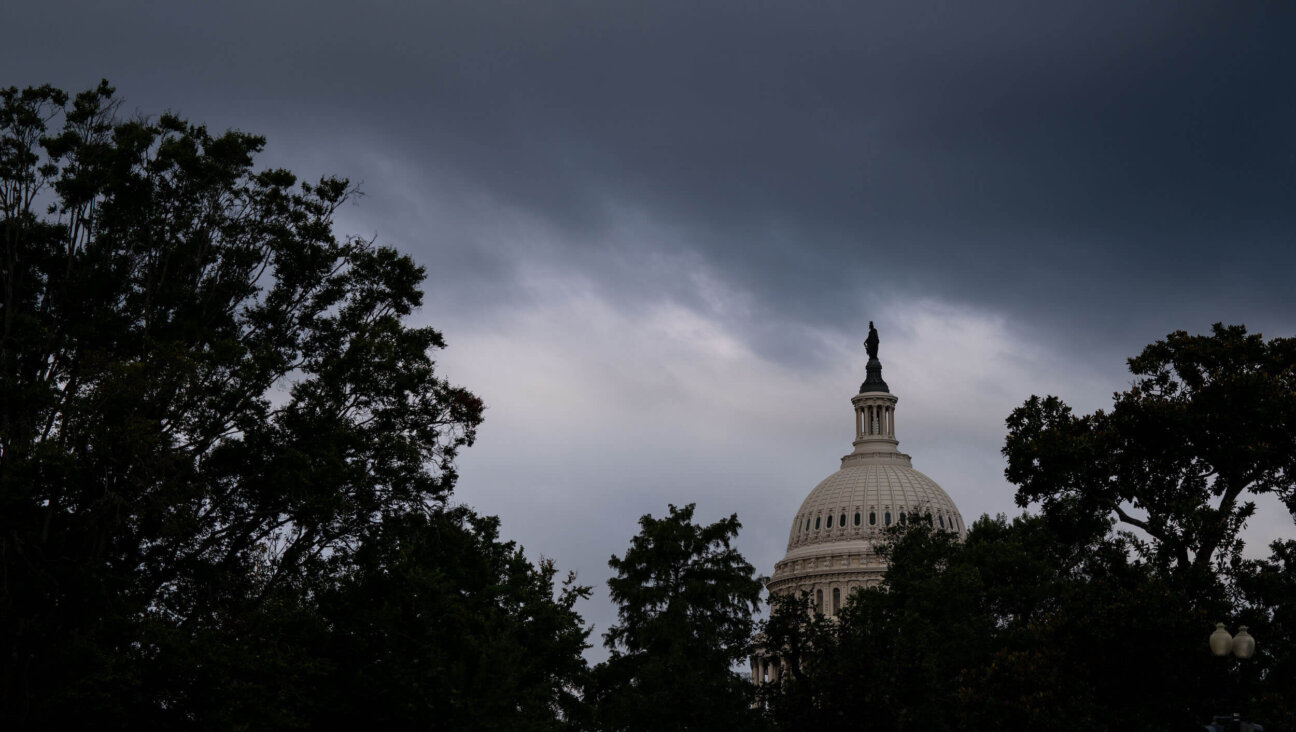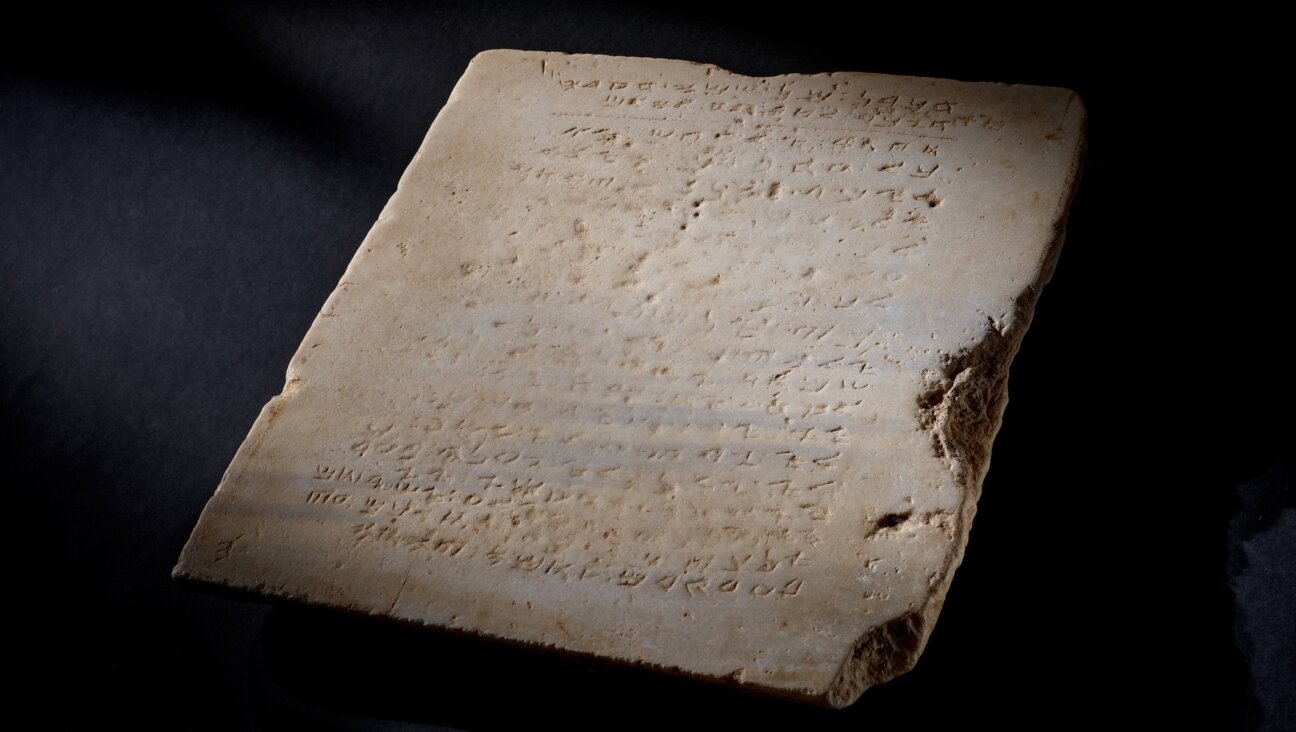Yeshiva Attack Renews Fears of Threat From East Jerusalem
Haifa, Israel – As visitors flocked last week to an East Jerusalem mourning tent honoring the late Ala Abu Dheim, much of Israel was seized with an uneasy sense that its capital city has an enemy within. Abu Dheim, the deceased, was identified as the shooter in the deadly March 6 attack on the Mercaz Harav yeshiva, just across town.
The shock, felt across the country, was not just emotional. It was security related. With the nation’s attention fixed for months on rockets bombarding southern Israel from Gaza, Israelis had adopted a mindset that their country’s major threats come from outside the borders.
The yeshiva attack dispelled that comfortable assumption. Within days, the nation’s media were buzzing over the fact that this attacker had come from the heart of Israel and were anxiously pondering just what that meant.
Like all Arab residents of East Jerusalem, Abu Dheim enjoyed freedom of movement throughout Israel and held a blue identity card indistinguishable from those carried by Israeli citizens, both Jewish and Arab. In the eyes of Israelis, he was a resident of Israel. But most Arabs in East Jerusalem scoff at that identity, and consider themselves Palestinians living under occupation.
The confusion stems from the disputed status of East Jerusalem in Israeli and international law. Israel captured the eastern half of the long-divided city in June 1967, during the Six Day War. Unlike the rest of the captured territories, East Jerusalem was formally annexed by Israel three weeks later. The unilateral annexation was rejected by the international community, including the United States, and remains a point of contention.
The uneasy contradiction between the East Jerusalem Arabs’ legal status as Israeli residents and their self-identification with the Palestinian cause has been taken in stride for so long that most Israelis barely remember it. Since the yeshiva attack, however, the open passage between East and West Jerusalem has become a matter of uncertainty and fear.
Labor Party lawmaker Danny Yatom, a former director of the Mossad intelligence agency, called last week for a change in the status of East Jerusalem’s Arabs. “We couldn’t have prevented an attack in which the attacker originates from Israel, because in East Jerusalem there are Palestinians with blue identity cards who can move about freely,” he told journalists. “How many more attacks must we undergo in order to understand that this situation needs to be changed?”
Yatom called for a downgrading of existing freedoms. “We must ensure some sort of oversight, so that those who live in East Jerusalem and have blue identity cards can’t cross into Israel without regulation and monitoring,” he said. Nor was this merely a shocked reaction to the shooting. Contacted by the Forward after Yatom’s remarks were made public, his office confirmed that he stands by his words.
It became clear that the danger of a threat inside Israel was causing unease at the highest levels when Public Security Minister Avi Dichter, a Kadima lawmaker and former Shin Bet director, told an Israeli radio station that he wants to find a way to expel terrorists from Ramallah, the Palestinian Authority capital, and from East Jerusalem.
“There is no intention, on the part of the security establishment, or the government of Israel, or the citizens of Israel, and especially the residents of Jerusalem, to let the terrorists take Jerusalem back to the first years of the intifada,” Dichter said. Days later, he instructed police to demolish the home of the gunman’s family. The order is pending legal approval from the Defense Ministry.
From the opposition benches, Likud leader Benjamin Netanyahu said the time had come for “Israeli Arab leaders to take a side. They must condemn the terrorism and… show that they are on the side of the State of Israel.” He added, “Israel cannot afford to have an enemy at home.”
Analysts say that where East Jerusalem Arabs are concerned, Israel is caught between a rock and a hard place. Accounting for almost one-third of the city’s population, they have the status of permanent residents and, in addition to freedom of movement, are entitled to social, economic, health and education services provided by the state. Maintaining this situation is widely believed to have security costs. At the same time, changing it would be considered unethical by many Israelis and would provoke outrage from Arabs and the international community.
“The dilemma is that from one point of view, you have people who are legally defined as part of Israel and carry Israeli ID cards, but from a second point of view defined as a threat,” said Tamar Herman, senior research fellow at the Israel Democracy Institute.
Some experts say the attack shows the urgency of re-examining the status of East Jerusalem Arabs. It is “important to draw a clear distinction between East Jerusalemites and Arabs in the rest of Israel,” said Elie Rekhess, senior researcher at the Moshe Dayan Center for Middle Eastern and African Studies at Tel Aviv University.
While the security dilemmas posed by the status of East Jerusalem are nothing new, the issue has been thrust to the fore by immediate events, which frequently determine Israel’s public agenda.
The varying reactions have created a sort of role reversal among political camps. Figures on the left, such as Yatom of Labor, are leading the push for closer monitoring and new restrictions on movement. The right has been relatively silent, reluctant to draw public attention to the anomalies of the united capital.
The right’s position is particularly delicate because of the possibility of Jerusalem being placed on the table in negotiations for a final-status agreement. “You cannot say that Jerusalem is completely Israeli and then not let its citizens move around,” Herman said.
Another expert, who asked for anonymity because he is a consultant to several prominent nongovernmental organizations, said that the right wants to remain loyal to the notion that Jerusalem is the “eternal and undivided capital,” but it lacks a clear answer as to how the large and growing Arab population should fit into this.
The expert noted that as a result the right feels that in its discourse it “must ignore” the East Jerusalem Arab population, including the security risks it might pose. “On the other hand, the left is able to raise the existence of this large minority as an issue, and call for action over the radicalization it is undergoing and the risks involved,” the expert said.
Some pundits are predicting that the growing recognition of the security questions raised by Jerusalem’s Arabs will actually help to end the taboo over dividing Jerusalem. Israelis, they say, are coming to favor the security benefits of placing them under Palestinian rule.
“The consensus that existed a few years ago over a united Jerusalem may be cracking even more among Jewish Israelis following this attack,” said Eran Shayshon, a senior analyst at the Reut Institute for Policy Planning. “This is because it is seen as evidence that you cannot rule 200,000 Arabs who see themselves as Palestinians.”
A message from our CEO & publisher Rachel Fishman Feddersen

I hope you appreciated this article. Before you go, I’d like to ask you to please support the Forward’s award-winning, nonprofit journalism during this critical time.
We’ve set a goal to raise $260,000 by December 31. That’s an ambitious goal, but one that will give us the resources we need to invest in the high quality news, opinion, analysis and cultural coverage that isn’t available anywhere else.
If you feel inspired to make an impact, now is the time to give something back. Join us as a member at your most generous level.
— Rachel Fishman Feddersen, Publisher and CEO





















